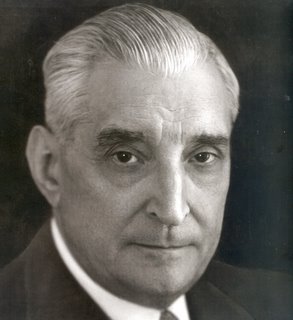IlPrincipe wrote:I was thus wondering if a "right of vote" allowed to the citizens by an exam based on their qualifications and aptitudes could be an alternative?
It used to be the case. I would go one further--that a politician should have to face such an exam too. The interesting question would be how do you construct the exam, or exams? I think there are two negative forces that apply to all humans: stupidity and laziness, both of which take some effort to overcome.
Literacy would be one factor. A voter should know the basic words and terms used in the constitution, for example. You wouldn't want to empower the political class to make it too arbitrary. A basic understanding of political institutions, their roles, etc. would also be useful. Too many people think the president is all powerful, and have little understanding of the legislature or the judiciary.
I think an ongoing test that would be interesting is a challenger's quiz, where a challenger gets to question prospective voters as to the votes of an incumbent. Too many people go to the polls and vote for someone who supports things they oppose, and they are not any wiser. They vote Democrat or Republican because their parents did, or their friends do, or their professor says that's how they should vote. People should know what the extant government has done and what their representatives have voted on. That would be a great test.
IlPrincipe wrote:The current democracies know different issues such as nepotist tendencies, corruptions or yet the mass medias manipulation.
I'd be inclined to preclude non-consecutive terms of office--forcing people to vote on ideas rather than on people.
IlPrincipe wrote:So my thoughts are maybe naive or hypothetical, but it would interesting to discuss if a new form of social organisation, maybe more efficient, would be conceivable, and if yes which one?!
For me, I think expansive suffrage is a big mistake. For example, all tax bills arise from the House of Representatives; yet, not all people who vote for representatives have to pay taxes. In my opinion, all tax bills should arise from representatives of people who have paid taxes. So in my opinion, all representatives who can propose a tax may only be elected by persons who have paid a tax--hence, I think a poll tax should be mandatory for such representatives.
I think having a Senate that's popularly elected violates federalism. Moreover, I think class factions should be represented and aren't. I think it would be interesting to revert one senator to election by a state legislature, and another senator to election by citizens who have paid a poll tax. That would fundamentally change the make up of the senate--giving states a vote, and tax payers a vote.
Potemkin wrote:However, the early 20th century saw the advent of the masses into the political sphere for the first time. Once that particular genie had been allowed out of the bottle, there's no way to shove it back inside again.
I think Adolf Hitler, Joseph Stalin, the Eastern European communists (Ceaucescu, Honnecker, etc), Franciso Franco, Benito Mussolini, Georgios Papadopoulos, etc. have more than proved that assertion false. The regular retort is that we "can't put the genie back in the bottle." I think we can and should. As Charles Murray suggests, we are already moving toward a different society based on a cognitive elite. We need a political system that reflects it.
My goal wouldn't be to take away the franchise from the poor, but rather from the stupid. We have too much stupid in this society. Rich and stupid, poor and stupid--you don't vote. If you're stupid, you just don't have that right. You want poor and smart--not necessarily tied to degrees, but aptitute--to be represented. You want their interests to be represented too.
IlPrincipe wrote:The universal suffrage gives of course the complete view of the people opinions and is very representative of what people think or want.
I think that is an assumption of fact not in evidence. Chuck Schumer has recently lamented--the South having lost most of its Democratic Party politicians now--that ObamaCare was not the right focus. Well, of course that's correct. However, they knew that before the 2008 election. The elected representatives did what special interests wanted, not what the people wanted. So the elected representatives are not reflective of the will of the people now. For example, Jeb Bush has considered running for the presidency and just issued his first gaffe, "You have to lose the primary to win the general without compromising your principles." Of course, you cannot lose the primary and win the general. What he means is, you have to lie your ass off in the primary without pissing off the middle, and then betray the base. Bush and a lot of the Republican Establishment and Democratic Party elites want to flood the United States with illegal immigrants to keep wages down, while at the same time leaving 90M Americans out of the workforce. This is not in the interest of rank and file Democrats or Republicans, but the political class in the United States is trying to do that anyway. So a French-style revolution may not be as far off as the elite in this country thinks.
Paul Sanderson wrote:I honestly can't see liberals going along with this though- I more imagine talk of elitism and the taking away of basic rights
Modern liberals really do not give two shits about the poor. Nobody in their right mind would flood the country with third world laborers who are illiterate in English and their native language in a country with 90M able-bodied people not participating in the labor force. They have an agenda, and it sure as shit isn't about helping the poor.
"We have put together the most extensive and inclusive voter fraud organization in the history of American politics."
-- Joe Biden






















 - By late
- By late